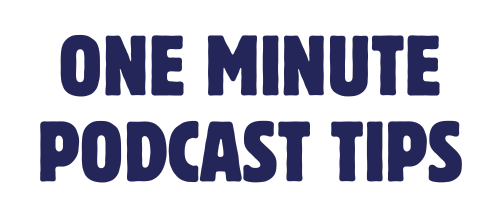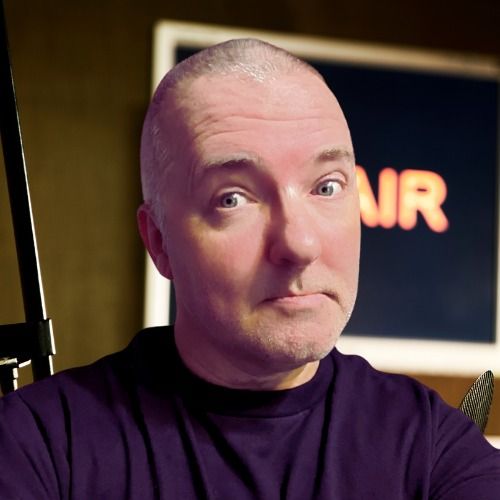Episode 88
How to Avoid or Remove Deep Breaths in Your Podcast Audio
Products I Use for One Minute Podcast Tips
Note: these contain affiliate links, so I may get a small percentage of any product you buy/use when using my link.
My equipment:
- Shure SM7B dynamic mic
- TZ Audio Stellar X2 condenser mic
- Rodecaster Pro II audio production studio
- Sony MDR-7506 Studio Monitor Headphones
- JOBY Wavo Boom Arm
- Elgato Wave Mic Arm Low Profile
Recommended resources:
Leave a review:
Mentioned in this episode:
Recommend the show
Help your friends and other podcasters discover One Minute Podcast Tips, by sharing/recommending this episode and/or the show with them!
Join the One Minute Podders membership for exclusive perks!
You're a serious indie podcaster looking to go beyond the one minute tips offered in each episode. You want to connect with like-minded podcasters as well as ask your own specific questions. Perfect - the One Minute Podders membership is just for you, with invite-only monthly live streams, early access to episodes 48 hours before anyone else, and a link to your podcast in the show notes.
Support One Minute Podcast Tips
This podcast uses the following third-party services for analysis:
OP3 - https://op3.dev/privacy
Transcript
I'm Danny Brown and you're listening to One Minute Podcast Tips, the show that helps you be a better
Speaker:podcaster in just a minute a week. If you want more specific tips just for you and your podcast,
Speaker:check out the Magic Mic membership at oneminutepodcasttips.com forward slash support.
Speaker:And now, this week's episode.
Speaker:When it comes to audio repair and optimization, three of the most common examples are mouth clicks,
Speaker:plosives, and deep or very noticeable breathing. Now for the last one, while breathing is obviously
Speaker:natural and something none of us can avoid, there are ways to help avoid it in your podcast audio.
Speaker:The first is mic technique and to speak across the mic. This helps direct your breath away from
Speaker:the mic, reducing breathing noises. The second is manually reducing the dB or decibel levels on the
Speaker:parts of the audio where breathing is most noticeable. This is a more manual step but very
Speaker:effective and keeps the audio more natural. And the third one is post-production tools like a
Speaker:de-breath plugin or noise gate. While both of these offer time-saving solutions, if used too aggressively
Speaker:they can actually make the audio worse since it becomes very choppy when breathing is present.
Speaker:For the most part though, breathing is a natural process and as humans we tend to tune that out.
Speaker:So, unless it's really distracting in your audio then personally I leave it in.
Speaker:If it is distracting any of the options mentioned here should help. Until the next time, happy podcasting.
Speaker:Thanks for listening if you enjoy One Minute Podcast Tips be sure to share with your friends
Speaker:and other podcasters so they can enjoy it too. Until the next time, happy podcasting
Speaker:♪♪♪






